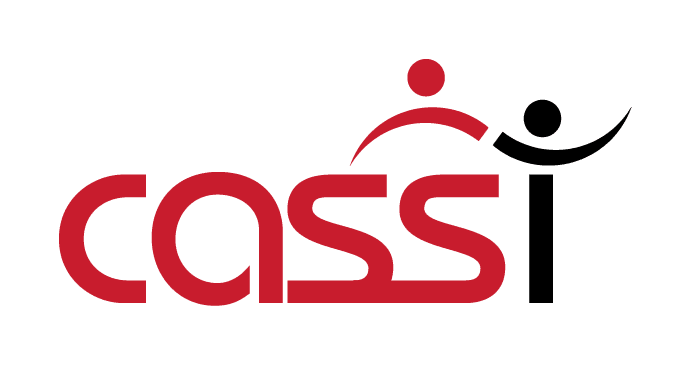Policy Statement
A whistle-blower is a person who provides information about a person or an organisation to expose misconduct that they consider is illegal, dishonest or unethical.
CASSI is committed to the highest standards of conduct, professional support and ethical behaviour. It is within this context that CASSI has established this policy in regard to whistle-blowers.
Objective
The objective of this policy is to encourage reporting of wrongdoing that is of legitimate concern by providing an effective and prudent reporting mechanism; and that there be appropriate supports for the person making the concern known.
The effective and steadfast use of this policy will also serve to ensure that CASSI has a policy, practice and procedure in this area which is a demonstration of our commitment to the values of our organisation.
CASSI’s whistle-blower Policy
- encourage disclosures of Potential Misconduct;
- help deter Potential Misconduct, in line with CASSI’s risk management and governance framework;
- ensure that individuals who disclose Potential Misconduct can do so safely, securely and with confidence that they will be protected and supported;
- ensure that disclosures are dealt with appropriately and on a timely basis;
- provide transparency around CASSIs framework for receiving, handling and investigating disclosures; and
- meet CASSI’s legal and regulatory obligations.
CASSI will not tolerate anyone being discouraged from speaking up or being subject to detriment because they want to speak up or they have done so. Disciplinary action, up to and including termination of employment or engagement, may be imposed on anyone shown to have caused detriment to a person because they want to, or have, spoken up.
Strategies and Procedures
How to make a report? If you become aware of potential misconduct that you reasonably suspect or know is fraudulent, illegal, improper or contrary to established CASSI policies it should be reported as soon as possible.
To whom such reports should be made, is at times explicitly identified in the relevant CASSI policy (for example, an allegation of abuse must always be made directly to the CEO). Where it is not so identified, then the report should be made to the CEO or to the Operations Manager, as soon as is possible.
Anyone with information about Potential Misconduct is encouraged to Speak Up.
This Policy applies to an individual who is:
- a person who chooses CASSI as a service provider.
- a current or former CASSI employee, including employees who are permanent, part-time, fixed term or temporary, casuals and managers;
- a current or former officer or associate of CASSI, for example a director or company secretary;
- a service provider or contractor who is providing, or has provided goods or services to CASSI, whether paid or unpaid (e.g. volunteering) including their employees; and
- a relative, dependent, or spouse of an individual identified in (a) to (c) above.
The implementation of this policy will generally be done in conjunction with other key policies at CASSI. Those policies describe behaviour and approaches by direct care staff, approaches to supervision by Management staff, the management and accounting of funds received, expended and retained, the approaches to governance by members of the CASSI Board.
These policies include and are not limited to the following:
- Complaints,
- Code of Conduct,
- Position Descriptions for direct care, administration and supervisory staff,
- Abuse, Harassment, Assault or Neglect,
- Administration Procedures,
- Audits of Service Delivery,
- Conflicts in the Workplace,
- Decision Making and Choice,
- Discrimination in the Workplace,
- Drugs and Alcohol,
- Incidents,
- Management and Governance,
- Medication,
- Nutrition and Swallowing,
- Privacy, Dignity and Confidentiality,
- Service User Finances,
- Social Media,
- Company and Data Protection Policy
People who are working within CASSI or who are associated with CASSI by other arrangements are the people who are most likely to realise that there may be something seriously wrong.
However, they may not wish to speak up for fear of appearing disloyal or may be concerned about being victimised or subject to reprisals for reporting wrongdoing.
CASSI seeks to encourage that any instances of suspected unethical, illegal, fraudulent or undesirable conduct, that involves CASSI, be reported.
CASSI will protect the confidentiality of the person making such a report so that such people will be able to do so without fear of intimidation, disadvantage or reprisal. To this end when a person makes a disclosure:
Their identity must remain confidential,
They will be protected from reprisal, discrimination, harassment or victimisation for making the disclosure,
A duly constituted internal inquiry or investigation will be conducted
Matters that are identified as being inconsistent with CASSI’s policies will be addressed with a view to an effective resolution,
The initial whistle blower will be informed about the outcome,
Any reprisal for having made the disclosure will be treated as serious wrongdoing under this policy.
This policy is established in order to protect and support a whistle-blower who discloses wrongdoing that is made with reasonable grounds to believe it is true. The policy is not in place to protect people who may make trivial or vexatious reports that have no substance. When speaking up, you will be expected to have reasonable grounds to suspect the information you are disclosing is true and accurate from first-hand knowledge, but you will not be penalised if the information turns out to be incorrect. However, you must not make a report that you know is untrue or misleading. Deliberate false reporting will not be covered by this Policy and will not be a protected disclosure. Where it is found that the person speaking up has knowingly made a false report, this may result in disciplinary action.
Examples of Potential Misconduct include but are not limited to:
- failure to comply with, or breach of legal or regulatory requirements;
- breach of CASSI’s Code of Conduct or other CASSI policies, standards or codes;
- engaging in or threatening to engage in detrimental conduct against a person who has made a disclosure, or is believed or suspected to have made, or be planning to make a disclosure of a Potential Misconduct;
- criminal activity;
- bribery or corruption;
- conduct endangering health and safety or causing damage to the environment;
- dishonest, unethical or irresponsible behaviour;
- conflicts of interest, including those relating to outside business interests, relationships, improper payments and donations;
- victimisation or harassment;
- modern slavery, which exists if a person is not working of their own free will, is treated like property, or is seriously exploited or abused. Examples of modern slavery are human trafficking, slavery and slavery-like practices, forced labour, servitude, early and forced marriage, debt bondage and forms of child labour;
- misleading or deceptive conduct, including conduct or representations which amount to improper or misleading accounting, taxation or financial reporting practices;
- conduct endangering the health and safety of any person or persons;
- breaches of privacy;
- unauthorised use of CASSI’s confidential information;
- concerns that pose a danger to the public or financial system (even if it does not involve a breach of law); and deliberate concealment of any of the above.
Personal work-related grievances
Disclosures that relate solely to personal work-related grievances, and do not relate to detriment or threat of detriment to the person speaking up, are not covered by this Policy.
Personal work-related grievances are those that relate to your current or former employment and only have implications for you personally, with no other significant implications for CASSI or other matters of misconduct beyond your personal circumstances.
Examples of personal work-related grievances include:
- an interpersonal conflict between you and another employee;
- a decision that does not involve a breach of workplace laws;
- a decision about your engagement, transfer or promotion;
- a decision about your terms and conditions of engagement; or
- a decision to suspend or terminate your engagement, or otherwise to discipline you.
However, If the personal work-related grievance includes information about a Potential Misconduct, or suggests misconduct beyond your personal circumstances, the personal work-related grievance may qualify for whistleblower protections under this Policy. Examples of a personal work-related grievance mixed with a Potential Misconduct include:
- where there is a breach of employment or other laws punishable by imprisonment for a period of 12 months or more;
- engaging in conduct that represents a danger to the public; or you suffer from or are threatened with detriment for making a disclosure.
How to report
You are encouraged to speak up to the CEO (ceo@cassi.org.au) or Operations manager.
You can choose to speak up in a confidential manner, anonymously or in a partially anonymous manner.
You can make a confidential disclosure where your identity is known to the CEO or Operations Manager and relevant stakeholders involved in the investigation and reporting of the Potential Misconduct. This is the preferred option as it allows the matter to be fully investigated whilst providing you with ongoing protection and support.
You can also choose to be partially anonymous where only the CEO or Operations Manager is aware of your identity and a pseudonym is used so your identity is not known to others. This may create some limitations to the investigation process.
You can make an anonymous disclosure if you do not want to reveal your identity. This is the least preferred option as it may not be possible to investigate the report if CASSI is unable to contact you for further information and it may make it difficult to offer you the same level of practical support if CASSI does not know your identity.
Protecting your identity
CASSI will look to protect the identity of people who speak up. Your identity (and any information CASSI has because of your report that someone could likely use to work out your identity) will only be disclosed if you give your consent to CASSI to disclose that information or in exceptional circumstances where the disclosure is allowed or required by law.
All information, documents, records and reports relating to the investigation of a Potential Misconduct will be confidentially stored and retained in an appropriate and secure manner. Access to all information relating to the disclosure will be limited to those directly involved in managing and investigating the disclosure. Only a restricted number of people who are directly involved in handling and investigating the disclosure will be made aware of your identity (subject to your consent) or information that is likely to lead to the identification of your identity.
Protecting you from detriment
You will not be penalised or subject to any detriment for speaking up. It is unlawful to cause detriment to you or another person on the belief or suspicion that a report has been, or will be, made, regardless of whether the report was made. CASSI will not tolerate such unlawful behaviour.
Examples of detrimental conduct include (but is not limited to):
- dismissal of an employee;
- injury of an employee in their employment;
- alteration of an employee’s position or duties to his or her disadvantage;
- discriminatory behaviour towards the employee;
- harassment or intimidation of a person;
- harm and injury to a person, including psychological harm; or
- damage to a person’s property, reputation, business or financial position.
Reasonable administrative or management action such as managing your unsatisfactory work performance does not constitute a detriment if the action taken is consistent with CASSI’s performance management process. An administrative action that is reasonable for the purpose of protecting you from risk of detriment is not detrimental conduct. For example, CASSI may ask you to perform your duties from another location, reassigning you to another role at the same level, make other modifications to your workplace or the way you perform your work duties.
If you believe you have been subjected to a detriment because of the actual or intended disclosure, you should immediately report the matter to the CEO or Operations Manager so prompt action can be taken to protect against further detrimental acts or omissions. Reports of detrimental conduct will be treated confidentially. You may also seek independent legal advice or contact regulatory bodies if you believe you have suffered a detriment.
Anyone engaging in unlawful detrimental conduct may be subject to disciplinary action. The action taken will depend on the severity of the breach, and may include a reprimand, formal warning, demotion, and/or termination of employment in the case of employees, or termination of contract in the case of suppliers or agents.
Reporting
The CEO will report the findings and actions directly to the Board Chair chair@cassi.org.au and the Audit and Risk Chair (ARC) arcchair@cassi.org.au.
In cases where the CEO, or a member of the Board or ARC has been accused of reportable conduct, or where they have a close personal relationship with the person against whom the accusation is made, they will be excluded from the reporting process.



